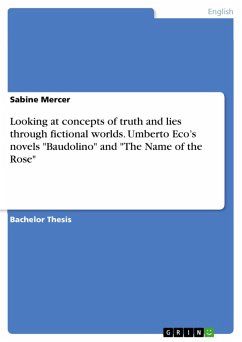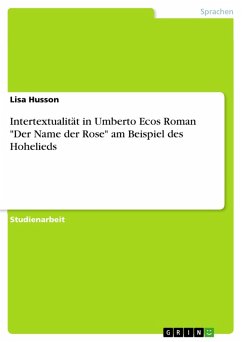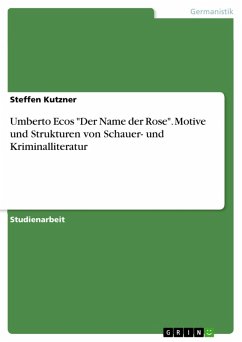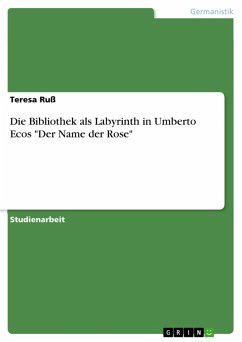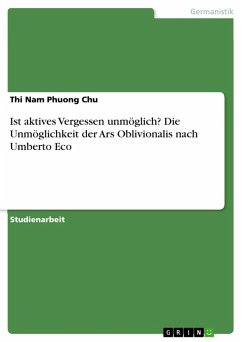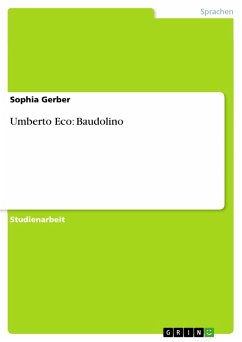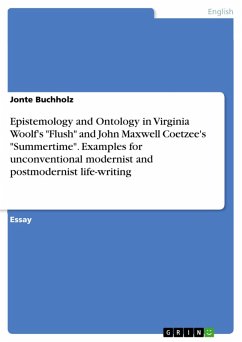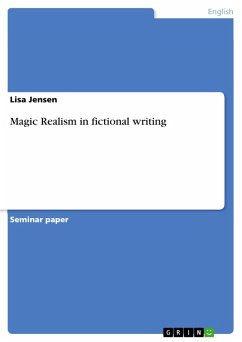Bachelor Thesis from the year 2010 in the subject English Language and Literature Studies - Literature, grade: 1.5, James Cook University, language: English, abstract: The question then is, must we silence the irrational voices inside and outside and make an effort to understand the complexity of our existence to save us from chaos? Umberto Eco continues the tradition of philosophical novels, a genre in which scientific concepts, logic and knowledge form an essential part of the story. This thesis focuses on two of his novels "Baudolino" and "The Name of the Rose". Not all knowledge-systems can be considered having equal value, but they all present competing frameworks. Whether we gain knowledge directly or indirectly, there are many different ways of knowing. It is part of the human condition to think that what feels to be true can exist independently of what we are told is true. What is of personal value we keep defending, even if we have to ignore facts or discredit contradictory arguments by labelling them as lies. No single theory can explain what we call 'reality', but we readily assume that reasoning and first-hand experiences are better guides than feeling. Still, the problem of self-deception looms large in appearances and judgements. His novels explore the interrelationship of belief, factual knowledge, differences between reality and perception, which can be subsumed under the categories of epistemology (the origin, nature, and limits of knowledge) and ontology (modes of experience, the categorical structure of reality, the nature or essence of individuals and objects). Both narratives are filled with examples that show the complexity of existence. When experience can be flawed and reasoning can lead to false conclusions, cautiousness and doubt should be applied. The medieval debate of ideas about the world and our place in it invites readers to reflect and to establish connections between the past and the present. The connection between Eco's postmodern meta fictions "The Name of the Rose" and "Baudolino" is illustrated in the light of Eco's numerous theoretical works. Both novels incorporate metaphysical and philosophical issues in a framework of fictionalized medieval controversies that engage with the nature of truth, justifications for a variety of beliefs, and the conceptual making of reality. The historical struggle between nominalism and realism, between totality and detail, and between empiricism and dogmatism, makes for a philosophical tour de force.
Dieser Download kann aus rechtlichen Gründen nur mit Rechnungsadresse in A, B, BG, CY, CZ, D, DK, EW, E, FIN, F, GR, HR, H, IRL, I, LT, L, LR, M, NL, PL, P, R, S, SLO, SK ausgeliefert werden.

